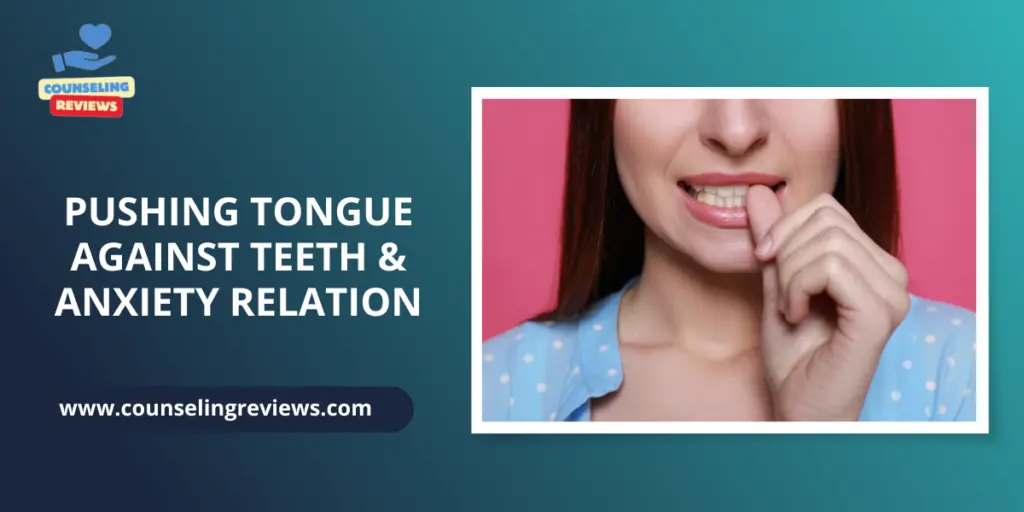When you think of anxiety, you probably imagine someone who often seems to be tense or on edge. You might think of someone who experiences excessive worrying, combined with physical symptoms like a headache or racing heart.
While this is probably a typical presentation for anxiety, it may present in other ways. Some people may find that they push their tongue against their teeth when they’re anxious. Learn more about this behavior below, and how it relates to anxiety.
Exploring Oral Habits in Anxiety
In my experience, people who have anxiety disorders tend to be tense and jittery, and these symptoms can manifest in physical ways. For instance, someone may bite their nails when anxious, or tap their fingers against their desk to calm their nerves.
In some cases, oral habits like pushing the tongue against the teeth can be a manifestation of anxiety. Called tongue thrusting, this behavior occurs in people who are particularly tense or anxious.
Anxiety can cause muscle tension, and the tongue may become a part of this tension. When a person is anxious, this can lead them to push the tongue firmly against the back of the teeth, or against the roof of the mouth.
Tongue thrusting isn’t the only oral habit associated with anxiety. When people struggle with anxiety, they may also engage in behaviors including jaw clenching, lip biting, and teeth grinding.
While these habits may relieve tension, they can cause problems over time. Oral habits like teeth grinding can cause pain, as well as complications in the teeth and temporomandibular joint (TMJ).
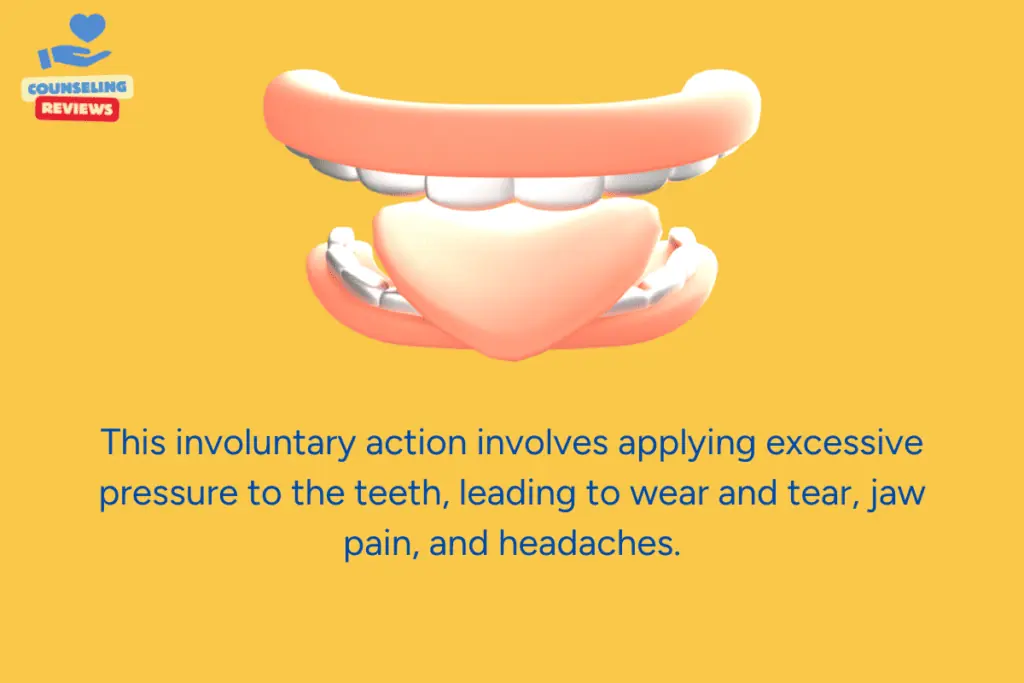
Psychological and Physiological Aspects
Oral behaviors like tongue thrusting are more likely in people who are stressed or anxious. Physiologically, muscle activity increases in people who experience high levels of stress. The body also has to prepare to fight against or escape from stress, which results in increases in hormone levels.
One hormone that increases in response to stress and anxiety is cortisol. Research has shown that cortisol levels tend to be higher in the saliva of people who engage in oral habits like teeth grinding. It seems that anxiety may stimulate oral habits, such as tongue thrusting and teeth grinding.
These behaviors can be soothing for people experiencing high levels of anxiety or stress. They can also be a side effect of the increased muscular activity that occurs when people are under stress. In some cases, people may be unaware that they are clenching their jaw or pressing their tongue against their teeth.
Mind-Body Techniques for Anxiety Relief
If you’re engaging in tongue thrusting or other oral habits when anxious, it’s important to find strategies for calming your body. Some mind-body techniques that may be beneficial include:
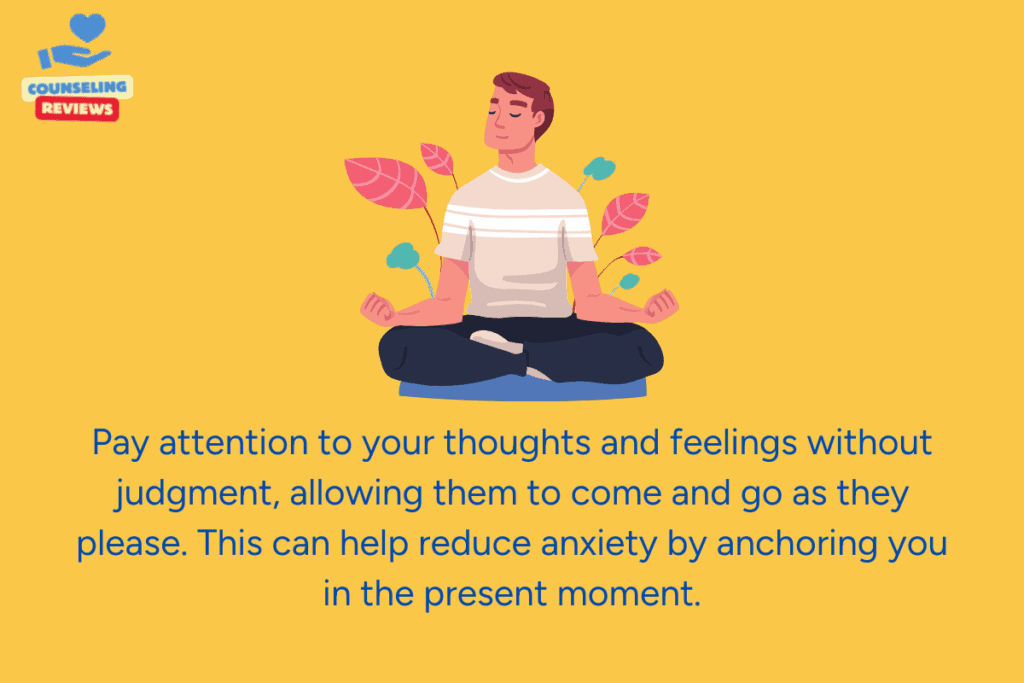
- Mindfulness-based meditation: Mindfulness meditation teaches people to become aware of their thoughts and feelings, without passing judgment on them. When someone learns mindfulness meditation, they can allow their thoughts and emotional states to come and go, without worrying about them. Mindfulness-based programs have been found to reduce anxiety levels. You can take mindfulness classes online or through a mental health clinic, or find online video tutorials.
- Yoga: Some research suggests that the practice of yoga can be beneficial for people who have anxiety disorders. It may not be as effective as therapy, but it can be an add-on treatment to help calm the body. There are various different types of yoga. You can find yoga videos online, or attend a yoga class at a local gym or fitness center.
- Progressive muscle relaxation: Progressive muscle relaxation (PMR) has also been identified as helpful for managing anxiety. This technique teaches people to relax their muscles, which is helpful since anxiety is linked to muscle tension. To practice PMR, tense and relax various muscles in the body, starting at the head and working down to the feet. First, tense the muscles, and then release them to relax.
Breaking the Tongue-Teeth Connection
There are strategies that can help you to break the tongue-teeth connection. First, try to develop an understanding of your patterns. Do you notice yourself pushing your tongue against the teeth at certain times, such as when you’re at work, or when you’re trying to get the kids off to school in the morning?
Make a note of the times when you’re engaging in oral habits, and be intentional about choosing a different activity during these times. For instance, you can take a deep breath, count to 10, or say a prayer during times when you typically find yourself turning to tongue-thrusting.
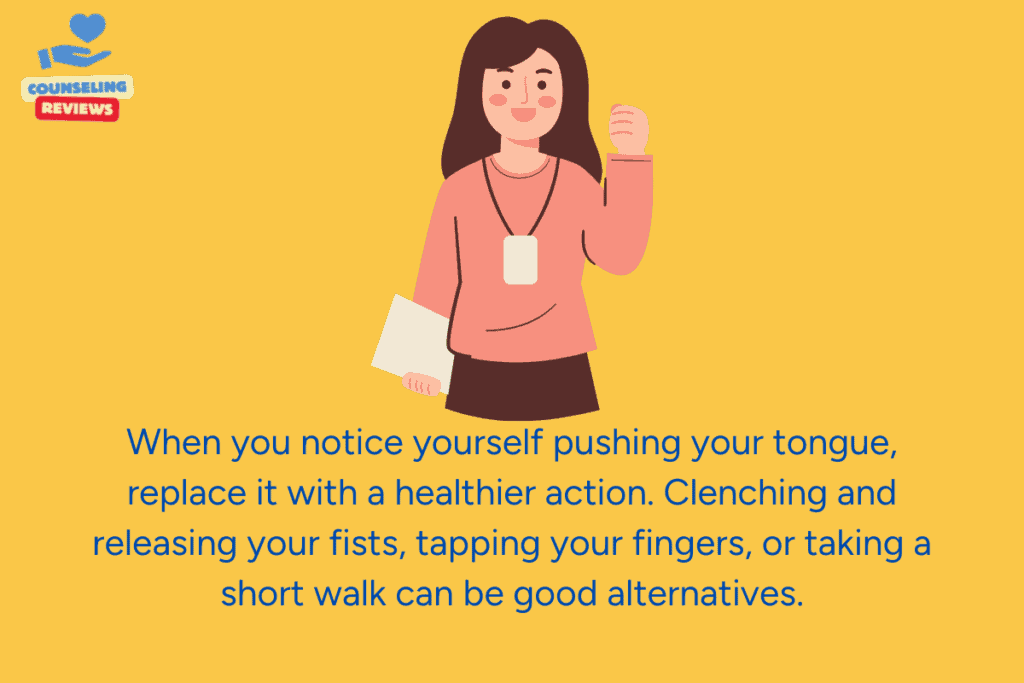
It’s also beneficial to make a habit out of relaxing the body. Incorporate mind-body techniques like yoga or meditation into your routine to relieve some of the tension in your body. It can also be helpful to make time for exercise, and be sure to get plenty of rest, especially when you’re feeling stressed.
Seeking Therapy for Anxiety Management
If you’re relieving anxiety and stress through tongue thrusting or other oral behaviors, you may have an anxiety disorder. In this case, professional treatment can help you manage your symptoms without turning to potentially harmful oral behaviors.
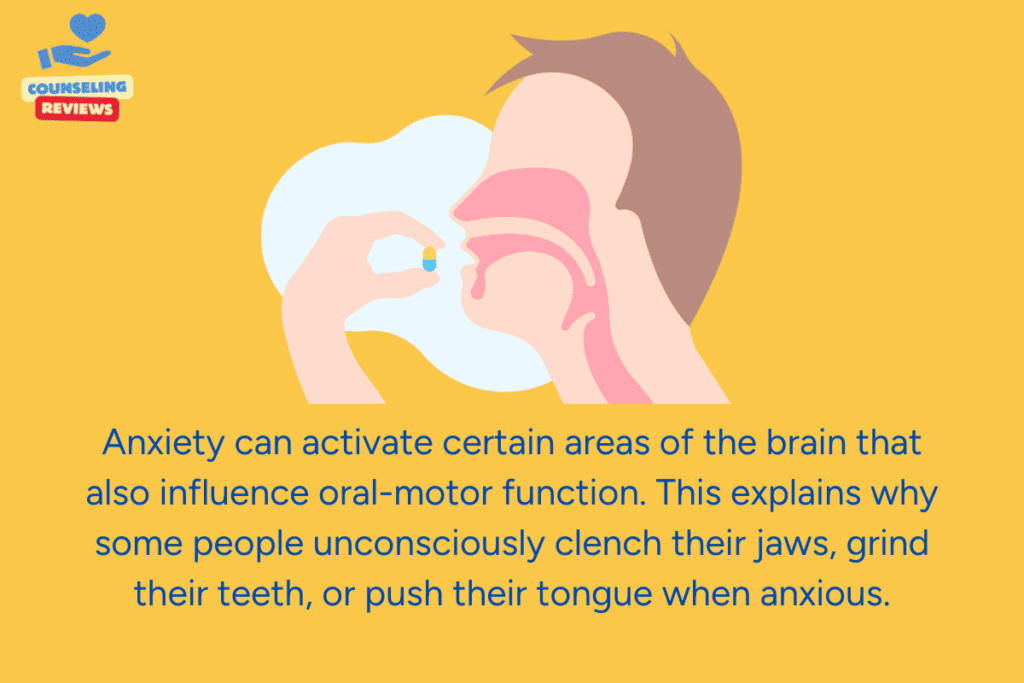
Anxiety disorders are often treated with talk therapy. A specific type of therapy called cognitive behavioral therapy (CBT) can help you to identify and correct irrational or dysfunctional thinking patterns that are exacerbating anxiety. Some therapists may use a type of treatment called acceptance and commitment therapy (ACT), which can help you to become more comfortable, even when faced with anxious thoughts.
In addition to therapy, some people may benefit from taking medication to manage anxiety symptoms. Antidepressant medications are often used to treat anxiety because they can help your brain use specific chemicals that control mood and stress. A doctor can help you determine which anxiety medication is the best option for you.
If you struggle with anxiety, online therapy may be beneficial for you. This treatment option allows you to connect with a mental health professional from the privacy of your home, so you can access treatment wherever you are. Online therapy can help you learn effective coping strategies and overcome distorted thoughts that are making you more anxious.

